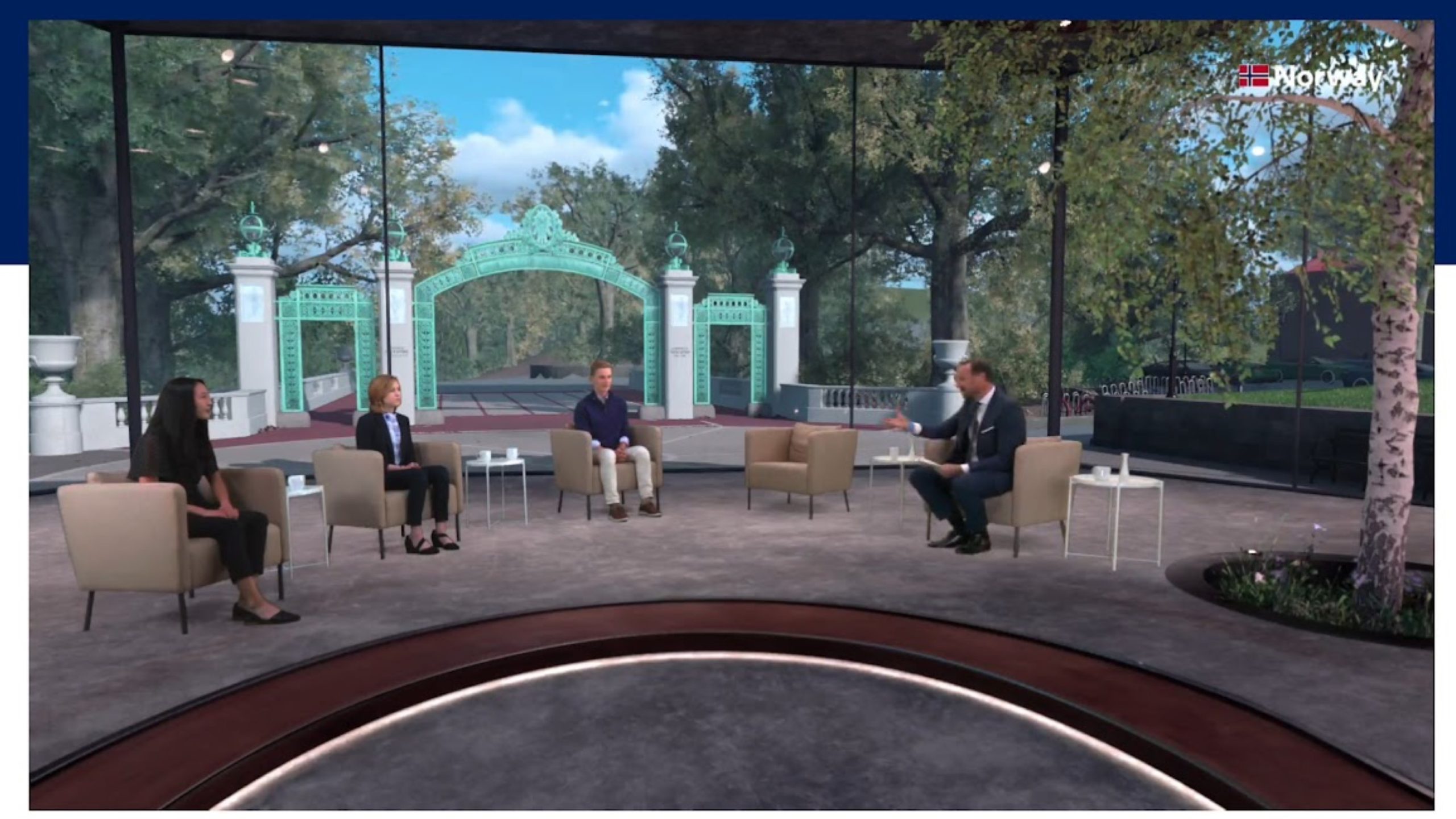“Yes, And…” Reflecting on the 2018 Net Impact Conference and How to Change the World

Written by Dalton Guthrie, MBA ’20
If you know anything about improv, you’re be familiar with the phrase “Yes, And.” If you’re not familiar, fret not because neither was I before taking Haas’ course on Leadership Communication. The idea is that when a partner makes a proclamation, you should respond with “Yes, and…” in order to foster a flowing, productive conversation. The “Yes” is necessary because it forces you to acknowledge and understand the idea being put forward. The “And” allows you to build on the contribution with your own, resulting in a more complete picture of the situation. Many have argued that the same philosophy is applicable to the professional environment, and throughout my experience at the Net Impact conference, I noticed the flow of nearly every conversation embodying this “Yes, And” philosophy.
Throughout the conference, speakers advised us to find the opportunities that fuel our passion and also match our talents. We need to find causes that make us say “Yes, I want to work on that.” At the same time, we need to assess and grow our skills, and find opportunities that make us say “And, I can do that.” The keynote speakers, such as Andrew Yang of Venture for America (and also a 2020 Presidential Candidate) and Stephen Ritz of Green Bronx Machine (whose foam cheese cowboy hat was on display throughout the weekend), provided plenty of inspiration and motivation for us future leaders (watch the NI18 keynote speeches here). Stephen shared a radical idea that has worked: gardening in NYC’s South Bronx. Andrew touted a radical idea that maybe could work: universal basic income.
Filled with inspiration, attendees ventured out to the breakout events to engage in more specific, concrete information we could use. A panel on impact evaluation emphasized that institutional funders need to stop demanding exhaustive impact metrics reporting while providing grants that can only be used on programmatic activities, which ends up suffocating already resource-constrained nonprofits. The speakers on this panel also urged us to not focus on the percent of a charity’s budget spent on overhead as the sole indicator of its worthiness of our donations. In another session, Kim Dempsey of The Kresge Foundation urged those interested in the world of CDFIs and impact investing to study and understand the basics of accounting. Just as “investing” is half of “impact investing,” in that space there can be no sustainable impact if the financial and accounting fundamentals are absent.
The ubiquitous question that kept reappearing throughout the conference was, “What should I do with my career to have the most impact?” During the panel on clean energy, one attendee asked whether the audience should pursue careers in government, public utilities, cleantech startups, or academic research. The panelists responded with a simple and resounding “Yes!” The issues being addressed within the impact space are complicated so there’s never a single solution. We need civic and business and nonprofit leaders. The panel on global food security was a great example of this. Bayer shared their efforts to increase agricultural yields, The Nature Conservancy imparted how water rights are crucial to long-term sustainability, and The Bill and Melinda Gates Foundation discussed the challenges of working with local agriculturalists in the developing world. Each of the speakers had extensive expertise in their particular area but recognized that no single organization would be able to ensure global food security by 2050.
In addition to exploring potential career paths, some attendees were curious about what else they could do to have an impact beyond their career. In one climate-related session, we discussed the issue of climate change denial and how simply showing up to local government meetings armed with facts, data, and sources can help influence policy at the local level. Paul Herman of HIP Investor encouraged students who are eager to create impact while still in school to advocate for their universities to divest their endowments into impact investing products. There was even a session specifically on “How YOU Can Invest for Impact” in which Haas alumna Samantha Penabad of GivingFund moderated a discussion with Yuliya Tarasava of CNote. Yuliya shared how CNote allows individuals to invest their savings in women and minority-led businesses, building schools and affordable housing, and supporting economic development across America.
Discussions centered not only around what we can do with our careers but also how to be conscious consumers. Levi’s VP of Global Innovation Paul Dillinger emphasized how critical evaluation and accountability is in order to ethically produce goods. Only through implementing the industry’s first comprehensive lifecycle assessment of the environmental impact of its jeans could it be held accountable by consumers and its own goals. The assessment included how consumers launder their jeans- a good reminder that the environmental aspects of consumption go beyond corporate production. Regarding ethical consumption, there was both discussion and action at the conference. We all practiced ethical food consumption at the catered lunch on Friday by eating Beyond Meat burgers. Lush gave away goodie bags of its handmade, eco-friendly cosmetics. At the booth I manned for the Patagonia Case Competition, we gave out samples of Patagonia’s responsibly sourced Organic Fruit + Almond bars, while encouraging students to partake in the challenge to make Patagonia’s wrappers for these bars as environmentally friendly as the food within them.
As the 2018 Net Impact Conference came to a close, I felt inspired and optimistic. “Yes” there’s a plethora of phenomenal work being done right now by a multiplicity of different agents across the environmental and social impact space. “And” I have some ideas about how I can continue that momentum going forward.
About the Author
 Dalton Guthrie is currently pursuing his MBA at the UC Berkeley Haas School of Business, with an emphasis on social sector leadership, where he is Co-President of Haas’ graduate Net Impact chapter. Dalton is interested in using data and interdisciplinary approaches to impact measurement and evaluation, especially as they apply to impact investing and philanthropy. Prior to Berkeley, Dalton was an economic consultant supporting clients across industries and sectors in the context of high-stakes litigation. Dalton also served on the boards of the Young Nonprofit Professionals Network Denver and the Chromosome 18 Registry & Research Society. He graduated summa cum laude with bachelors degrees in Economics and Philosophy-Neuroscience-
Dalton Guthrie is currently pursuing his MBA at the UC Berkeley Haas School of Business, with an emphasis on social sector leadership, where he is Co-President of Haas’ graduate Net Impact chapter. Dalton is interested in using data and interdisciplinary approaches to impact measurement and evaluation, especially as they apply to impact investing and philanthropy. Prior to Berkeley, Dalton was an economic consultant supporting clients across industries and sectors in the context of high-stakes litigation. Dalton also served on the boards of the Young Nonprofit Professionals Network Denver and the Chromosome 18 Registry & Research Society. He graduated summa cum laude with bachelors degrees in Economics and Philosophy-Neuroscience-


